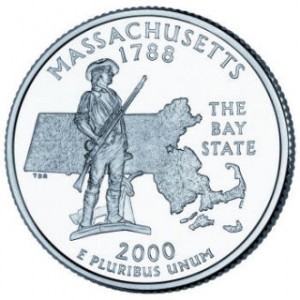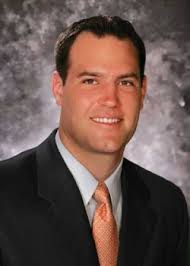No state that has ever approved casino gambling has repealed it in over 80 years. That being said, casinos are polling weakly in  Massachusetts — with support hovering at 50% — and the opposition is getting cocky. A perversely worded ballot question (you vote “yes” for repeal, “no” for casinos) is adding to the free-for-all atmosphere.
Massachusetts — with support hovering at 50% — and the opposition is getting cocky. A perversely worded ballot question (you vote “yes” for repeal, “no” for casinos) is adding to the free-for-all atmosphere.
To hear casino opponents tell it, a win in Massachusetts could lead to repeals elsewhere. “If Massachusetts votes to repeal casinos, this could represent a turning of the tide. But even if the casinos win, the fact that they’re even having this vote says to the industry that maybe they should think twice about how many casinos they’re opening,” says Boston College gaming expert Richard McGowan.
Some are unimpressed. Penn National Gaming is proceeding full steam ahead on its Plainville racino and will have spent $100 million on it by Election Day. (MGM Springfield may be hurting its cause by hanging back, not presenting voters with the fait accompli of an in-progress casino come November.) “If Massachusetts votes to repeal the law, these jobs all go away the next day,” warns Penn COO Jay Snowden (below).
 The sluggish performance of the Massachusetts Gaming Commission, led by the lackluster Stephen Crosby, is credited with stoking up opposition. “Massachusetts has already taken longer than any state in history on its licenses,” says Clyde W. Barrow, a political scientist at the University of Texas-Pan American and one of the leading thinkers on gaming issues.
The sluggish performance of the Massachusetts Gaming Commission, led by the lackluster Stephen Crosby, is credited with stoking up opposition. “Massachusetts has already taken longer than any state in history on its licenses,” says Clyde W. Barrow, a political scientist at the University of Texas-Pan American and one of the leading thinkers on gaming issues.
Still, if the repeal fails it will be a self-inflicted wound upon the Massachusetts economy. In addition to giving the finger to thousands of would-be job seekers, it would also continue the exportation of millions in Massachusetts gambling dollars to Rhode Island and Connecticut. But if that gives opponents any self-doubt they’re hiding it well.
* “We work with the philosophy that gaming is going away — a little bit every day,” says Tim Martin, chief of economic development for the Poarch Band of Creek Indians. It’s strong for now, contributing net revenues of $322 million in 2012. However, the Poarch Band doesn’t want to be a one-trick pony or be at the mercy of having its casino operations shut down. As a consequence, it has diversified, investing in everything from Florida hotels to peanut farming, closer to home.
 The Poarch Band still leans, though on its gambling offerings, having long since bought greyhound tracks in Pensacola and Mobile. (“They’re holding their own,” says tribal Vice Chairman Robert McGhee. Just barely, according to the Florida Department of Business & Professional Regulation.) The tribe has faced down state opposition to its Class II casinos but, with state Attorney General Luther Strange (R, left) holding fast and key legislators equally unwilling to bend, it is now looking at trying to make a Florida compact with Gov. Rick Scott (R). Still, says McGhee, “We would never stop looking at opportunities for us to expand gaming in other areas. That’s just good business.”
The Poarch Band still leans, though on its gambling offerings, having long since bought greyhound tracks in Pensacola and Mobile. (“They’re holding their own,” says tribal Vice Chairman Robert McGhee. Just barely, according to the Florida Department of Business & Professional Regulation.) The tribe has faced down state opposition to its Class II casinos but, with state Attorney General Luther Strange (R, left) holding fast and key legislators equally unwilling to bend, it is now looking at trying to make a Florida compact with Gov. Rick Scott (R). Still, says McGhee, “We would never stop looking at opportunities for us to expand gaming in other areas. That’s just good business.”
This just in …
Las Vegas‘ newest hotel, after a fashion.
* Gambling to save money? Lotteries and raffles are the latest promotional scheme credit unions are using, in an imaginative way of incentivizing depositors to build up savings.


New Yorkers will have the option to open to repeal casino gaming in 2017 as well, should Cuomo lie to his constituents and pull and bait and switch by siting casinos in affluent suburban communities in downstate new York under the “Upstate Gaming and Economic Development Act”
Yup, 2017 is a special year because of the vote on a constitutional convention.